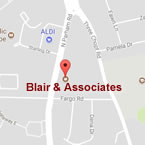5 Reasons the IRS Will Audit You … and How to Avoid It
October 2019

The IRS audited a slightly smaller percentage of individual tax returns in 2018. According to the agency report, it audited about 892,000 individual returns compared to about 934,000 in 2017 … result, a reduction from 0.62 percent to 0.59 percent.
Given a shortage of personnel and funding, taxpayer exposure to IRS audits are on the decline as a percentage of total taxpayers. That said, your chances of being audited or called upon to respond to IRS inquiries about the validity of your tax return escalates based on a variety of factors including your income level, math mistakes, hiding income, deduction overkill and round numbers can raise the red flag.
The IRS is focusing its audit resources on areas where it knows taxpayers are traditionally noncompliant: small businesses, international taxpayers, high-wealth taxpayers, and possible Earned Income Tax Credit fraud schemes. Traditional wage earners who have traceable income reported on Forms W-2 face much less scrutiny.
If you are singled out by the IRS to be audited, there’s little you may do to halt the process. So, the adage an ounce of prevention is worth a pound of cure is worth keeping in mind. Reduce your odds by following these steps to stay on the right side of the agency.
Preparation is Better Than Inspiration
Prepare in advance. Ideally, wait until you receive all your income reports, bank and investment statements and other applicable financial paperwork before initiating filing your tax return. Then, don’t stress over the potential of an audit. However, do consistently maintain documentation of all items reported on your tax returns … invoices, bills, canceled checks, receipts, and other proof.
Report All Taxable Income
The IRS gets copies of all the 1099s and W-2s you receive. That is reason enough to be sure you report all required income on your return. IRS computers that discover a mismatch will wave a red flag that you may be a candidate for audit. Double-check that you have accounted for all your tax documents … every W-2, and every 1099. Did you do work for anyone who did not send you the appropriate reporting form? If so, find out why and get it rectified ASAP.
A typical oversight occurs with the issue of 1099-MISC forms in the name of an independent contractor instead of the business entity. For example, If you recently incorporated, you may not have alerted clients that your 1099 should be issued under your corporation’s tax ID number in place of your Social Security number. If needed, request your client to provide a corrected form. That will ensure you accurately report income to both you and your company.
Self-Employed Taxpayers as Potential Audit Targets
Schedule C is the IRS form widely used by the self-employed to declare itemized tax deductions. While it’s true that the new tax law delivers significant tax breaks, the IRS is alert that self-employed people sometimes claim excessive deductions and don’t report all their income.
So, Schedule C filers are about four times more likely to receive questions about their return. Included in this taxpayer category are cash intensive businesses and freelance service gigs. Agency scrutiny is triggered by reports of substantial losses and expenses that are questionable in meeting the two-fold test of 1) ordinary, and 2) necessary to your profession. A safety test is to ask yourself, “Was the expense absolutely necessary to perform my work?”
Under the new tax law, gone are the days of deductions for entertainment expenses such as a client golf outing or theater tickets. Additionally, the IRS is ever-watchful for meals and travel on Schedule C. There are strict substantiation rules that must be observed including detailed records that document each expense, the amount, receipts, place, people attending, business purpose, and nature of the discussion or meeting.
Note: If you are the sole Member of a Limited Liability Company (LLC), your business results should be reported on Schedule C (unless a real estate activity, then Schedule E).
Individual Taxpayer Cautions
Unusual or unrealistic itemized deductions may raise a red flag for auditors. If the deductions on your return are disproportionately large compared with your income, the IRS may select your return for review. That said, if you have accurate documentation for your deduction … by all means claim it.
Large charitable deductions attract IRS scrutiny … when they appear disproportionate to your income. For example, claiming a deduction for more than 30 percent of your income to charity is not typical for most people. Note: The IRS keeps statistics on what the average charitable donation is for folks at your level of income.
The Penalty for Carelessness
Unfortunate and preventable errors in preparing your return can lead to an IRS audit. Auditors view erroneous data entries as one of the most common red flags. Note: Don’t make mistakes! Check your numbers! You’ll be hit with fines regardless of whether your mistake was intentional.
Yes, mistakes can happen, especially when you’re doing your own taxes. Distractions may include forgetting that final zero or transposing a 3 instead of an 8. Also, some taxpayers choose to “make things simple” by rounding up to even $100 intervals. Don’t do it! Round to the nearest dollar. For example, if you are claiming a deductible expense of $395.65 … round to $396, not $400 … an even number likely to attract IRS scrutiny.
Additionally, be aware that the IRS maintains a data base used to cross-check the accuracy of items on your return. So, be sure to correctly report dependents based on how their information is registered with the Social Security Administration (SSA). For example, a name-change during the tax year due to marriage that goes unreported to the SSA will trigger a red flag with the IRS. Likewise, a misspelling of a dependent’s name or being hyphenated for the first time will prompt IRS attention to your return. The IRS automated system will detect discrepancies such as these and not distinguish whether it is due to a mistake or an intentional act. Result: You’ll be contacted.
As Ever … There’s Plenty More to the Tax Compliance Story
The above is an outline of 5 of the major areas of concern that may attract IRS scrutiny and potentially trigger an audit. There are many other items that may prompt contact by the agency … some additional examples follow:
• Claiming rental real estate losses
• Taking an alimony deduction
• Failure to report a foreign bank account
• Writing off a loss for a hobby
• Failing to Report Gambling Winnings or Claiming Big Gambling Losses
• Claiming losses due to fraud
• Claiming a home office deduction
Key Takeaways
The number of audits conducted by the IRS are minimal and you are unlikely to be a taxpayer subjected to that scrutiny by the agency. That said, paying attention to the items that are most likely to cause concern will further ensure that you will enjoy the peace of mind of knowing you’re in compliance … and if contacted have all the right answers and documentation to prove you’re conforming to the rules.
The new tax law adds another dimension to the complexity of staying on top of the tax code as it applies to your unique circumstances. Be sure to check with your tax professional to ensure an accurate assessment of your status under the new regulations.
We can help. Give Blair + Assoc a call or drop an email. We’ll respond immediately.

